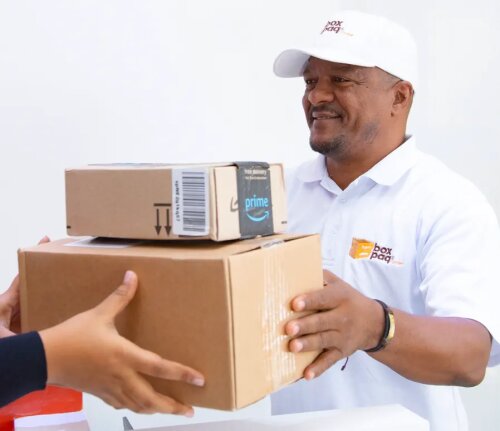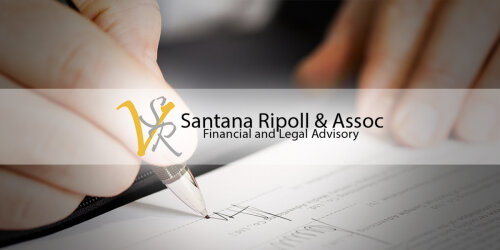Best Renewable & Alternative Energy Lawyers in Puerto Plata
Share your needs with us, get contacted by law firms.
Free. Takes 2 min.
List of the best lawyers in Puerto Plata, Dominican Republic
About Renewable & Alternative Energy Law in Puerto Plata, Dominican Republic
Renewable and alternative energy law in Puerto Plata, a coastal province in the Dominican Republic, is focused on regulating the development, investment, generation, distribution, and consumption of clean energy sources. The Dominican Republic, including Puerto Plata, is endowed with abundant natural resources like sun, wind, and water, positioning the area as a prime location for solar, wind, and small-scale hydroelectric projects. Legal frameworks foster public and private investment, incentivize the use of renewable energy, and offer guidelines for environmental sustainability. The government actively promotes energy projects that reduce dependence on imported fossil fuels and advance sustainability initiatives under national and international commitments.
Why You May Need a Lawyer
Many individuals, businesses, and investors in Puerto Plata may require legal assistance when dealing with renewable and alternative energy matters. Some common scenarios where a lawyer can be invaluable include:
- Navigating permit and licensing processes for building or operating renewable energy systems
- Drafting and reviewing contracts for power purchase agreements, equipment supply, or land leases
- Advising on incentives and tax benefits for renewable energy investments
- Assisting in property matters, including land acquisition for energy projects
- Addressing disputes between developers, landowners, and utility companies
- Understanding compliance obligations with environmental and grid connection regulations
- Guiding foreign investors through local legal requirements and processes
- Ensuring compliance with changing national and municipal energy policies
- Handling administrative proceedings related to incentives or permits
- Protecting intellectual property rights for innovative energy technologies
Local Laws Overview
Several legal instruments and regulations impact renewable energy projects in Puerto Plata:
- Law No. 57-07 on Incentives for Renewable Energy and Special Regimes: This national law provides the foundation for Dominican Republic’s incentives and regulations regarding renewable energy, including tax exemptions, import duty waivers, and fixed tariffs for renewable energy production.
- Environmental Regulations: Renewable energy projects must comply with the regulations issued by the Ministry of Environment and Natural Resources, including environmental impact studies and operation permits for certain projects.
- Electricity Law No. 125-01: Establishes the framework governing the generation, transmission, and distribution of electricity, introducing reforms for private sector participation, and provisions for interconnection of renewable sources to the national grid.
- Municipal Permits and Zoning: Local permits from Puerto Plata’s municipality are often required, especially for construction, land use, and urban planning considerations.
- Grid Interconnection Standards: There are specific technical standards for connecting private renewable projects to the national electricity grid, often managed by the National Energy Commission (Comisión Nacional de Energía, CNE).
These laws and rules ensure that renewable energy projects are both economically viable and environmentally responsible.
Frequently Asked Questions
What types of renewable energy are most common in Puerto Plata?
Solar and wind energy projects are the most common in Puerto Plata due to the region’s climatic and geographic conditions, though there are also small hydro and biomass initiatives.
What incentives are available for renewable energy in the Dominican Republic?
Law 57-07 offers tax credits, import duty exemptions for equipment, reduced tariffs, and other financial incentives for developers and users of renewable energy.
Do I need a permit to install solar panels on my property?
Yes, permits are generally required, particularly for larger installations or those intended to supply electricity to the grid. Residential systems may have streamlined processes but should still comply with local and environmental regulations.
Can I sell excess energy generated by my renewable system to the grid?
Yes, net metering policies allow qualifying producers, including households and businesses, to sell surplus electricity back to the grid, subject to current national energy regulations and grid interconnection agreements.
What are the environmental requirements for a renewable energy project?
Projects must adhere to national and local environmental assessments, including environmental impact studies and operating licenses issued by the Ministry of Environment and Natural Resources.
Can foreign investors participate in renewable energy projects?
Yes, foreign investors are welcome and benefit from the same incentives as nationals. However, they must adhere to the applicable regulations and procedures, which may require additional paperwork.
How does land use law affect renewable energy projects?
Energy projects must comply with zoning and land use regulations. It is crucial to verify that the intended land use aligns with municipal guidelines, and obtain relevant permits or modifications if necessary.
What role does the National Energy Commission (CNE) play?
The CNE regulates, supervises, and promotes energy policy in the Dominican Republic. It issues permits, oversees grid connections, and administers incentive programs for renewable energy.
Are there specific rules for importing renewable energy equipment?
Yes, qualified renewable energy projects can import certified equipment duty-free, subject to approvals defined under Law 57-07 and customs procedures.
What legal risks should I consider before starting a renewable energy project?
Risks include fluctuating regulations, challenges in securing land rights, contract disputes, evolving grid connection requirements, and compliance with environmental standards. Legal guidance helps in identifying and managing these risks.
Additional Resources
If you need further information or support, consider consulting these resources:
- National Energy Commission (Comisión Nacional de Energía, CNE): Oversees national energy policies and offers detailed guidance on laws, permits, and incentives.
- Ministry of Environment and Natural Resources (Ministerio de Medio Ambiente y Recursos Naturales): Responsible for environmental approvals and impact assessments.
- Superintendency of Electricity (Superintendencia de Electricidad, SIE): Monitors regulations related to electricity production, distribution, and tariffs.
- Chamber of Commerce and Production of Puerto Plata: Assists with business registration, local investment, and permits.
- Local law firms specializing in energy and environmental law: Offer tailored legal advice based on your individual needs.
Next Steps
If you are considering a renewable or alternative energy initiative in Puerto Plata or require legal support, it is recommended to take the following steps:
- Define your project goals and determine the type of renewable energy system you wish to develop or invest in.
- Consult a local attorney with expertise in energy and environmental law early in the planning process to ensure compliance with all regulatory requirements.
- Prepare preliminary documentation regarding your property, intended technology, and investment plans.
- Contact relevant authorities, such as the National Energy Commission, to understand applicable permits and incentives.
- Stay informed about updates to local and national laws, tax incentives, and technological standards affecting renewable energy in Puerto Plata.
- Gather all necessary documentation and be prepared for possible inspections or public consultations required during permit processes.
- If you encounter disputes or complex issues, seek immediate legal guidance to protect your interests and ensure your project's success.
Early legal guidance and proactive planning can help you avoid delays, protect your investment, and contribute positively to the sustainable development of Puerto Plata.
Lawzana helps you find the best lawyers and law firms in Puerto Plata through a curated and pre-screened list of qualified legal professionals. Our platform offers rankings and detailed profiles of attorneys and law firms, allowing you to compare based on practice areas, including Renewable & Alternative Energy, experience, and client feedback.
Each profile includes a description of the firm's areas of practice, client reviews, team members and partners, year of establishment, spoken languages, office locations, contact information, social media presence, and any published articles or resources. Most firms on our platform speak English and are experienced in both local and international legal matters.
Get a quote from top-rated law firms in Puerto Plata, Dominican Republic — quickly, securely, and without unnecessary hassle.
Disclaimer:
The information provided on this page is for general informational purposes only and does not constitute legal advice. While we strive to ensure the accuracy and relevance of the content, legal information may change over time, and interpretations of the law can vary. You should always consult with a qualified legal professional for advice specific to your situation.
We disclaim all liability for actions taken or not taken based on the content of this page. If you believe any information is incorrect or outdated, please contact us, and we will review and update it where appropriate.











